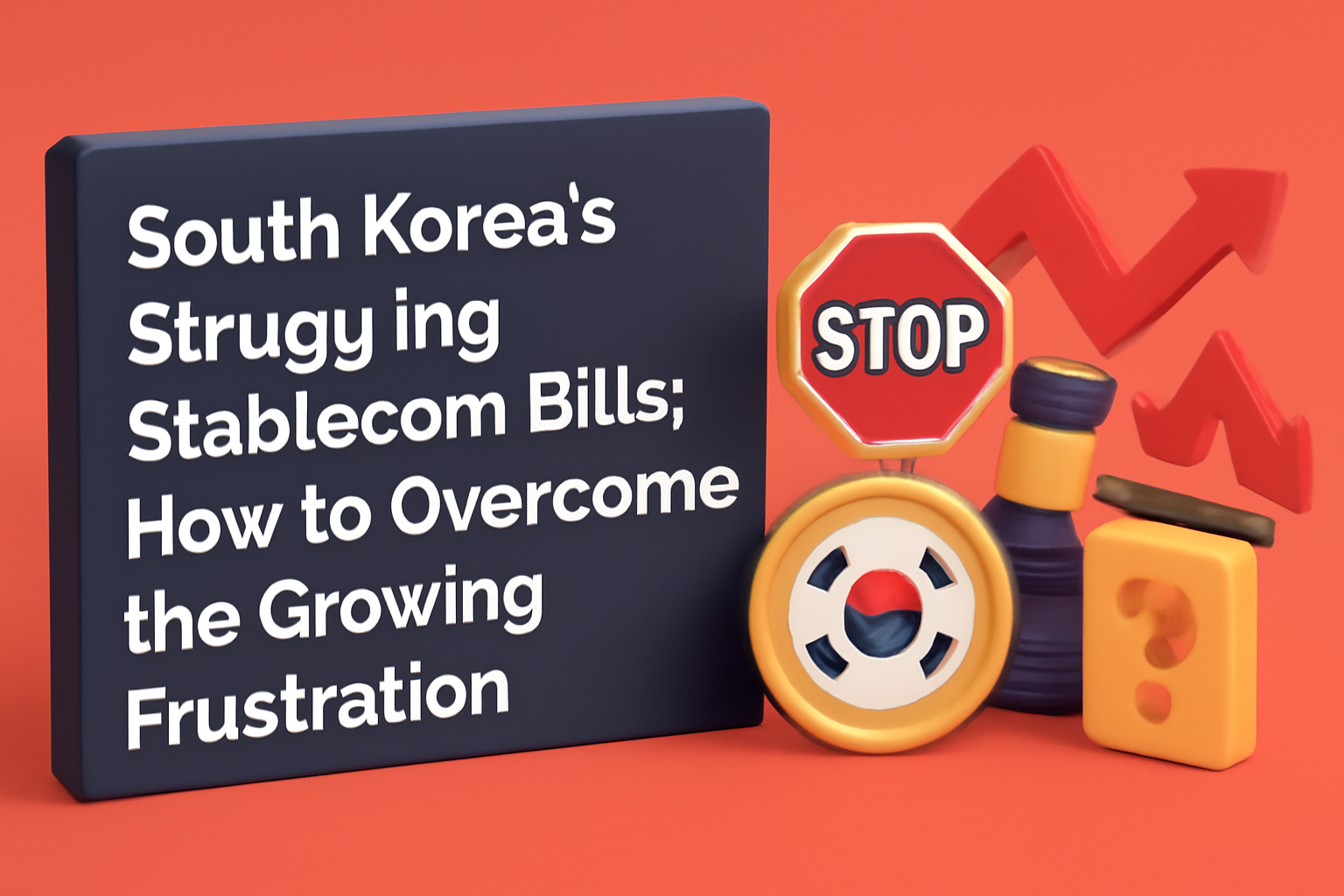In recent months, South Korea’s efforts to regulate stablecoins have encountered significant delays. What was initially seen as a progressive move toward establishing clear legal frameworks for cryptocurrency has turned into a political and legislative struggle. As frustration grows among stakeholders, many are questioning the future of stablecoins in the country.
What’s Behind the Delays in South Korea’s Stablecoin Legislation?
South Korea’s government initially presented ambitious plans to regulate stablecoins, aiming to create a balanced environment for the growing cryptocurrency industry. However, progress has stalled due to disagreements within the legislature. Lawmakers have struggled to reach consensus on key issues, such as the scope of government oversight. As a result, the process has become mired in delays, leaving the crypto community uncertain about the future of stablecoins.
Growing Frustration Among Crypto Enthusiasts and Lawmakers
The frustration surrounding the delays has reached beyond the crypto industry. Legislators who initially supported the legislation are voicing concerns over the lack of progress. As other nations move forward with similar regulations, South Korea’s inaction is beginning to look like a missed opportunity. This stagnation has raised doubts about whether South Korea can still position itself as a leader in the global crypto space.
The Political Divide: How South Korea’s Government Is Impacting Stablecoin Progress
One of the main reasons behind the delays is the political divide within South Korea’s legislative bodies. There are disagreements over how to regulate digital currencies, with some lawmakers pushing for stricter regulations and others advocating for more flexible rules that would allow innovation to flourish. These differing viewpoints have created a legislative gridlock, preventing progress on the stablecoin bill. This divide has left both investors and lawmakers frustrated, as the lack of consensus is stalling what was meant to be a vital legal framework for the cryptocurrency industry.
Global Implications: How Delays in South Korea’s Stablecoin Regulation Affect the Crypto Market
The global crypto market has also felt the effects of South Korea’s regulatory delays. South Korean investors, who have been a driving force in the Asian crypto market, are now uncertain about the future of their investments. Without clear legal protections, many are hesitant to make new investments, creating a more cautious atmosphere. As other countries like the United States, Japan, and the European Union continue to develop and implement their own stablecoin regulations, South Korea risks losing its competitive edge in the global crypto space.
Can South Korea Catch Up? Evaluating the Impact of the Legislation’s Stagnation
With other countries moving ahead, South Korea faces the risk of falling behind in the race to establish clear cryptocurrency regulations. As nations like the U.S. and the EU take the lead, South Korea’s failure to act could result in a loss of its position as a global leader in digital finance. The ongoing delay raises important questions: Can South Korea recover from this legislative gridlock, or will the delay have long-lasting consequences for its crypto industry?
Possible Solutions: What Can Be Done to Accelerate South Korea’s Stablecoin Laws?
To overcome the current deadlock, experts suggest that South Korea’s government engage in more dialogue with the crypto community. By better understanding the concerns of industry leaders and investors, lawmakers may be able to reach a compromise that balances regulation with innovation. A clearer roadmap for regulation would likely alleviate some of the frustration surrounding the process and help South Korea regain its position as a key player in the global cryptocurrency market.



